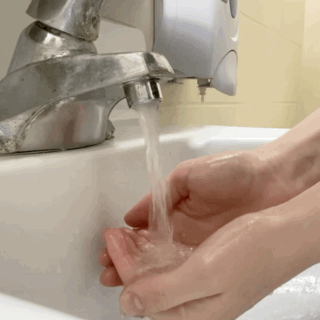Local businesses have struggled to stay afloat during the pandemic. Seventeen percent of U.S. restaurants have closed due to COVID-19. They’ve swung from closed, to open with restrictions, to closed again -- and some have operated in spite of mitigation rules, potentially putting customers and employees at risk for the virus.
Between August 2020 and the end of January 2021, the DeKalb County Health Department received nearly 400 COVID-19 complaints from employees or customers spanning over 100 businesses.
Greg Maurice is the director of health protection at the DeKalb County Health Department. He says the first step for his department is to reach out to those businesses, get their side of the story and inform them about the current mitigation rules in place -- no fines or penalties right away.
“Always our main goal was always to try to educate, to give people opportunities to come into compliance and multiple opportunities at that,” he said.
According to county records via the Freedom of Information Act, restaurants and bars saw the most complaints, typically for violating indoor service rules. But a variety of businesses like gyms, gas stations, post offices -- even churches and a police department -- also had complaints.
They went beyond indoor dining to employee masking, lack of distancing, employees working with symptoms, positive cases or warning of potential outbreaks.
“Once we get second and consecutive complaints that would come in regarding the facility, if they're similar in nature, then we would go to performing basically a site visit doing an inspection to verify the complaint,” said Maurice.
Sometimes on those site visits, inspectors discover locations aren’t breaking the rules -- and are actually taking extra precautions. Local law enforcement informs the health department if they conduct a site visit that verifies a violation, often with photographic evidence.
A handful of businesses racked up more than a dozen complaints. One DeKalb County restaurant had 45 complaints over several months -- the most of any business.
Even as multiple complaints come in, Maurice says the health department’s priority is still education. They do additional visits to explain they’re in violation and then wait to see if the complaints stop. Then they drop off a written warning.
“The step after that written warning essentially is verifying again that they are still violating it, giving them an 'order to disperse' letter, which would basically state that the customers need to vacate, employees need to vacate until they comply with the regulations,” said Maurice.
The health department gives them around 24 to 48 hours to come into compliance before they recheck. There is one final step if yet again a business refuses to abide by COVID safety rules.
“We would write an additional violation complaint letter basically stating that at that point, we're referring them over to our legal -- so the State's Attorney's office -- to see if there was anything legally that wanted to be pursued for them continuing to violate the tear mitigations,” he said.
Maurice says the department has had to do that, but extremely rarely -- fewer than 10 cases have gotten to that point.
He says he understands the frustration businesses feel -- especially restaurants that can’t seat people outside in subzero temperatures -- but they don’t want to close them down. They just want them to operate in the safest way possible.
“We get a lot of pushback. I think a lot they’re saying the health department is trying to close all these places down, trying to be heavy-handed -- that's absolutely not true,” he said. “I mean, of course, we want all of our businesses to survive. We wouldn’t exist.”
COVID-19 mitigation restrictions for things like indoor dining have been loosened as county case rates fall. Chicago recently expanded indoor dining capacity.
Every region of Illinois is now in Phase 4 of the State’s reopening plan. Maurice says in DeKalb County that means bars and restaurants are open for limited indoor service for up to 25 people, or 25% occupancy, whichever is fewer.
“A lot of the local health departments were all pushing to have just limitations on the indoor dining, right versus the full closure of it. But that was one of the things we didn't get [to present] feedback like for the state to potentially relax some of that to allow some limitations more like [we see] now,” said Maurice.
Emergency rules established last August by Gov. J.B. Pritzker opened the door for businesses to be penalized for not adhering to indoor dining bans or enforcing masks. Several businesses in Illinois have been fined thousands of dollars for defying the orders. Politicians have been critical of a perceived focus on local restaurants and county law enforcement officials in Illinois have even said at times that they wouldn't enforce indoor dining bans.
As the state moves into mitigation tiers with looser restrictions, Maurice says the number of COVID-19 complaints is likely to dwindle. Illinois residents can file complaints of unsafe conditions with their county’s health department over the phone, or on the department’s website.


